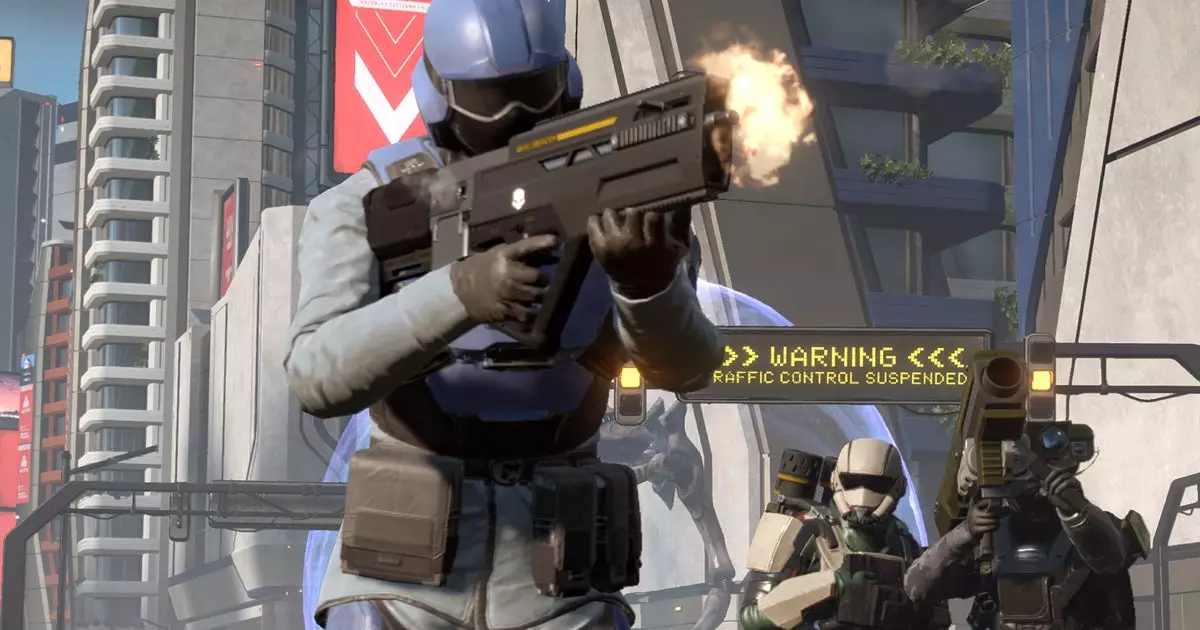The gaming universe often serves as a reflection of real-world dynamics, and few recent events illustrate this better than the conclusion of Helldivers 2’s Heart of Democracy update. As players of this co-op shooter banded together to repel an invasive force known as the Illuminate, they discovered more than the thrill of victory; they unearthed a potent blend of cultural interaction, national pride, and the consequences of miscommunication. The storyline culminated in the successful defense of the in-game city, Equality-On-Sea, which echoes China’s Shanghai, underscoring the inherent potential for games to serve as platforms for cross-cultural collaboration.
Unpacking the Equality-On-Sea Phenomenon
Equality-On-Sea became a focal point of pride and contention within the gaming community. As players around the world poured their efforts into defending this virtual stronghold, the city’s situation sparked a debate that transcended mere gameplay. The strategic importance placed on this location by Chinese players was palpable, as they perceived its defense as a reflection of their own national identity. The local news coverage by Kanka News’s Good Morning Shanghai, highlighting the cooperative efforts of both Chinese and non-Chinese gamers, signifies an unprecedented acknowledgment of gaming as a unifying force amid national boundaries.
However, beneath the celebration lurked discontent. A contingent of players experienced substantial frustration, leading to a review bombing phenomenon that criticized the game for its mechanics. The crux of their discontent stemmed from a malfunction of expectation versus reality—a belief that they could achieve total control over the city when, in fact, the mechanics of the game prevented such outcomes during an active invasion. This disconnect speaks volumes about player engagement and the yearning for meaningful agency within the game. The apparent oversight by the developers to effectively communicate these mechanics left many feeling disillusioned.
Cultural Interpretations and Communication Breakdown
This entire debacle sheds light on the critical importance of localization in gaming. As players struggled with a translation mix-up that misled them into believing they could liberate Equality-On-Sea, we are reminded how nuances in language can impact the gaming experience. The notion that many players felt cheated out of a victory suggests a significant barrier that was not only linguistic but also perceptual. Here, the frustration stemmed from a profound misunderstanding regarding player responsibility in ongoing game dynamics.
It is critical for developers at Arrowhead to take these lessons to heart. Gaming can no longer be viewed merely as a solitary pastime—it has evolved into an arena for collective experiences that can reflect broader social themes. Helldivers 2, with its cooperative gameplay, is ideally positioned to cultivate cross-cultural connections, but only if its messages and mechanics are crystal clear and align with players’ expectations.
As dialogues surrounding the significance of virtual spaces continue to evolve, Helldivers 2 stands at the crossroads of player interaction and developer responsibility. The passionate responses—both positive and negative—offer invaluable insights that could reshape how gaming communities function in the future. The stakes have never been higher, and the potential for unity amidst diversity remains tantalizingly within reach.

